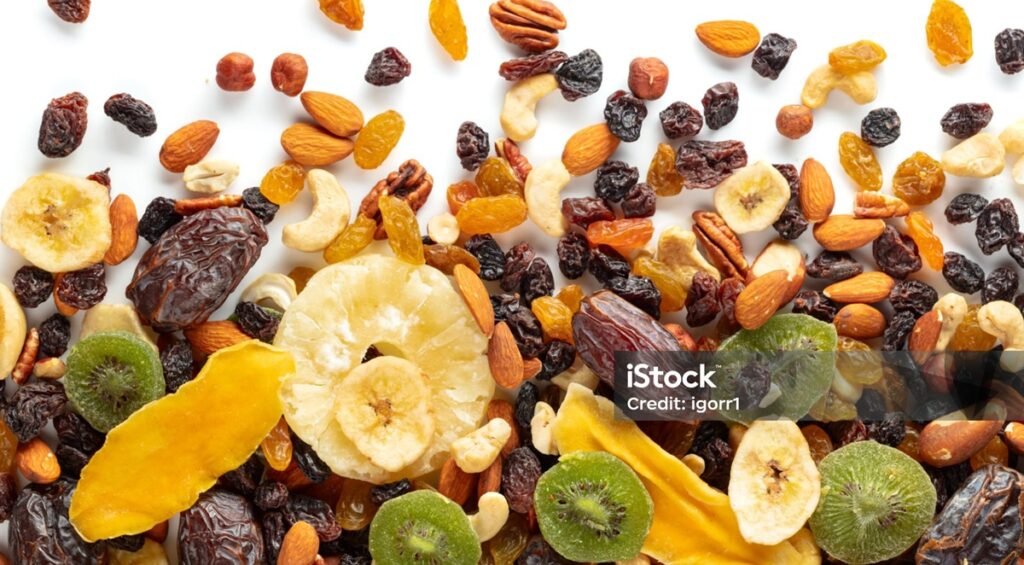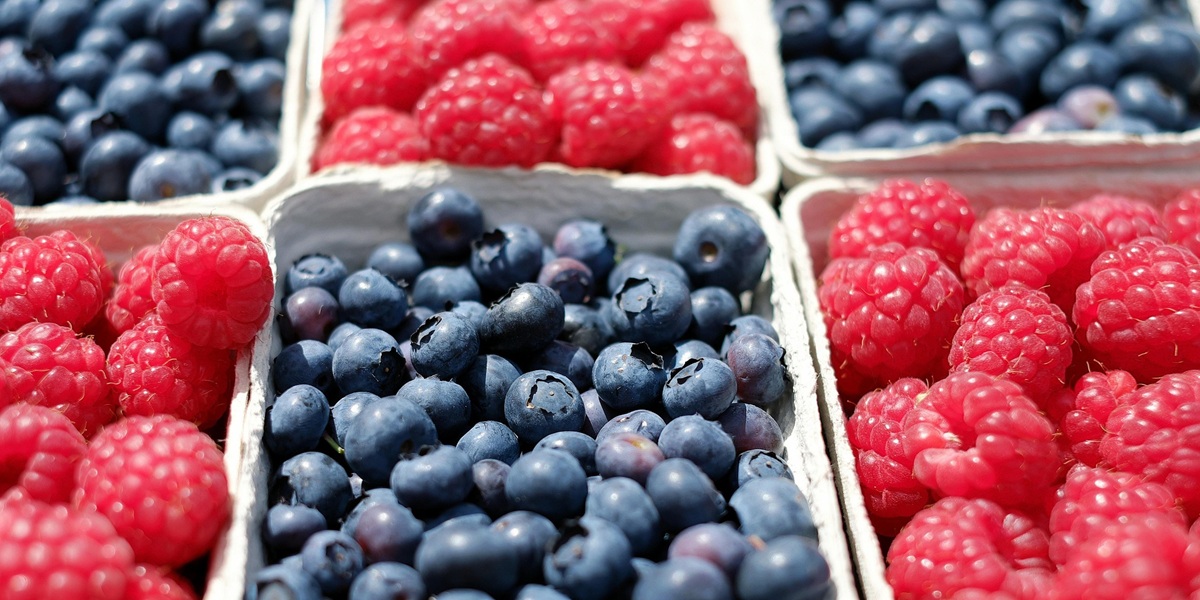Dried fruits are not only a delicious snack but also a powerhouse of nutrients that have been cherished for centuries. Known for their long shelf life and concentrated flavor, dried fruits offer a rich source of vitamins, minerals, and antioxidants. Research suggests that regular consumption of dried fruits like raisins, dates, and figs can significantly improve digestive health, boost immunity, and even reduce the risk of heart disease. For instance, a study published in the Journal of Nutrition highlighted that dried fruits provide higher levels of fiber and antioxidants compared to their fresh counterparts. Additionally, the convenience of dried fruits makes them an ideal choice for busy lifestyles. Whether you’re looking to enhance your diet with nutrient-dense snacks or add a natural sweetness to your meals, dried fruits offer an unparalleled combination of taste and health benefits. Keep reading to discover why dried fruits are a global favorite and how you can make the most of them in your daily diet.
Health Benefits of Dried Fruits: Backed by Science
• Dried fruits like prunes, dates, and figs are packed with fiber, aiding in digestive health and preventing constipation.
• A study published in Food Research International revealed that dried fruits contain up to three times more antioxidants than fresh fruits, which help reduce inflammation and support heart health.
• Regular intake of dried fruits has been linked to improved bone density due to their high levels of potassium, magnesium, and vitamin K.
The Nutritional Value of Dried Fruits: A Comparative Analysis
• Dried fruits are concentrated sources of energy, providing up to four times more fiber, vitamins, and minerals than fresh fruits per serving.
• According to the USDA National Nutrient Database, a 100-gram serving of dried apricots offers 47% of the recommended daily intake of vitamin A, essential for immune function and vision.
• The drying process retains most of the nutrients, making dried fruits a convenient and nutrient-dense snack option.
How Dried Fruits Aid Weight Management and Metabolism
• High fiber content in dried fruits promotes a feeling of fullness, reducing overall calorie intake and supporting weight management.
• A study in the Journal of Medicinal Food demonstrated that subjects consuming dried fruits regularly experienced enhanced metabolic function and better insulin sensitivity.
• Natural sugars in dried fruits provide a quick energy boost without causing significant spikes in blood sugar levels, making them ideal for athletes and active individuals.

Dried Fruits in Global Cuisines: A Versatile Ingredient
• Dried fruits have been a staple in Mediterranean, Middle Eastern, and Asian cuisines for centuries, used in both sweet and savory dishes.
• In Persian cuisine, dried fruits like raisins and apricots enhance the flavor of rice dishes and stews, providing natural sweetness and a rich nutritional profile.
• The high fiber and antioxidant content of dried fruits make them a preferred ingredient in healthy baking, smoothies, and energy bars globally.
Choosing and Storing Dried Fruits: Expert Tips
• Opt for unsweetened and unsulfured dried fruits to avoid added sugars and preservatives that can diminish their health benefits.
• Store dried fruits in airtight containers in cool, dark places to prevent moisture absorption and preserve their flavor and nutrients.
• Checking labels for organic certifications ensures the absence of pesticides and chemicals, enhancing the safety and quality of dried fruits.
Dried Fruits and Gut Health: A Natural Solution
• Dried fruits are rich in soluble and insoluble fiber, which promotes healthy bowel movements and prevents constipation.
• A study published in the Journal of Nutrition highlighted that prunes, in particular, contain sorbitol, a natural laxative that supports gut health.
• The prebiotic fibers in dried fruits act as food for beneficial gut bacteria, enhancing microbiome diversity and improving digestion.
• Regular consumption of dried fruits like figs and dates has been linked to reduced risk of digestive disorders such as irritable bowel syndrome (IBS).
• Incorporating a handful of dried fruits into your daily diet can help balance gut flora and improve nutrient absorption.
Dried Fruits for Skin Health: The Antioxidant Advantage
• Dried fruits like apricots, figs, and raisins are loaded with antioxidants, including polyphenols and flavonoids, which protect the skin from oxidative stress and aging.
• Vitamin C and E in dried fruits help in collagen production, maintaining skin elasticity and reducing wrinkles.
• A research study in the Journal of Dermatological Science confirmed that antioxidants in dried fruits can neutralize free radicals, preventing skin damage and inflammation.
• Beta-carotene in dried apricots enhances skin tone and protects against UV radiation.
• Adding dried fruits to your diet can naturally improve skin texture, hydration, and overall appearance.
Dried Fruits for Heart Health: A Cardioprotective Choice
• Dried fruits like raisins, figs, and dates are high in potassium and magnesium, which help regulate blood pressure and reduce the risk of hypertension.
• A study in the American Journal of Clinical Nutrition found that regular intake of dried fruits can lower LDL (bad) cholesterol levels, minimizing the risk of heart disease.
• The antioxidants in dried fruits prevent the oxidation of fats in the bloodstream, reducing plaque formation in arteries.
• Soluble fiber in dried fruits helps maintain healthy cholesterol levels and supports cardiovascular health.
• Including a mix of dried fruits in your diet can help promote heart health and prevent chronic conditions like atherosclerosis.

The Environmental Benefits of Choosing Dried Fruits
• Dried fruits have a lower carbon footprint compared to many processed snacks due to their long shelf life and reduced need for refrigeration.
• The drying process minimizes food waste by preserving fruits that would otherwise spoil quickly, making them a sustainable choice.
• Organic dried fruits, cultivated without synthetic pesticides or fertilizers, support soil health and biodiversity.
• A report by the Food and Agriculture Organization (FAO) emphasized that dried fruits require less packaging and transportation resources, further reducing their environmental impact.
• Choosing locally sourced dried fruits helps support sustainable agriculture and reduces greenhouse gas emissions associated with long-distance transport.
The Best Ways to Incorporate Dried Fruits into Your Diet
• Add dried fruits like raisins, apricots, and figs to your morning oatmeal or yogurt for a natural sweetness boost.
• Use dried fruits in baking, such as muffins, breads, and energy bars, to replace refined sugars with a healthier alternative.
• Mix dried fruits with nuts and seeds to create a nutrient-dense trail mix, ideal for snacking between meals.
• Rehydrate dried fruits by soaking them in water or juice and use them in salads, rice dishes, or smoothies.
• Incorporating a variety of dried fruits into your meals not only enhances flavor but also provides a concentrated source of essential vitamins and minerals.
Dried Fruits – A Perfect Blend of Taste and Nutrition
Dried fruits are nature’s answer to the growing demand for healthy and convenient snacks. Packed with essential nutrients, they not only satisfy your sweet cravings but also contribute significantly to your overall well-being. Studies have shown that dried fruits like apricots, prunes, and figs are rich in potassium, iron, and fiber, making them effective in supporting heart health and digestive function. According to a report by The American Journal of Clinical Nutrition, people who regularly consume dried fruits have better nutrient intake and lower risks of obesity. Moreover, the antioxidant properties of dried fruits help combat oxidative stress, which is linked to chronic diseases. With their impressive nutritional profile and versatility in recipes, dried fruits prove to be a valuable addition to any diet. Embrace the natural goodness of dried fruits and transform your snacking habits for a healthier lifestyle.




